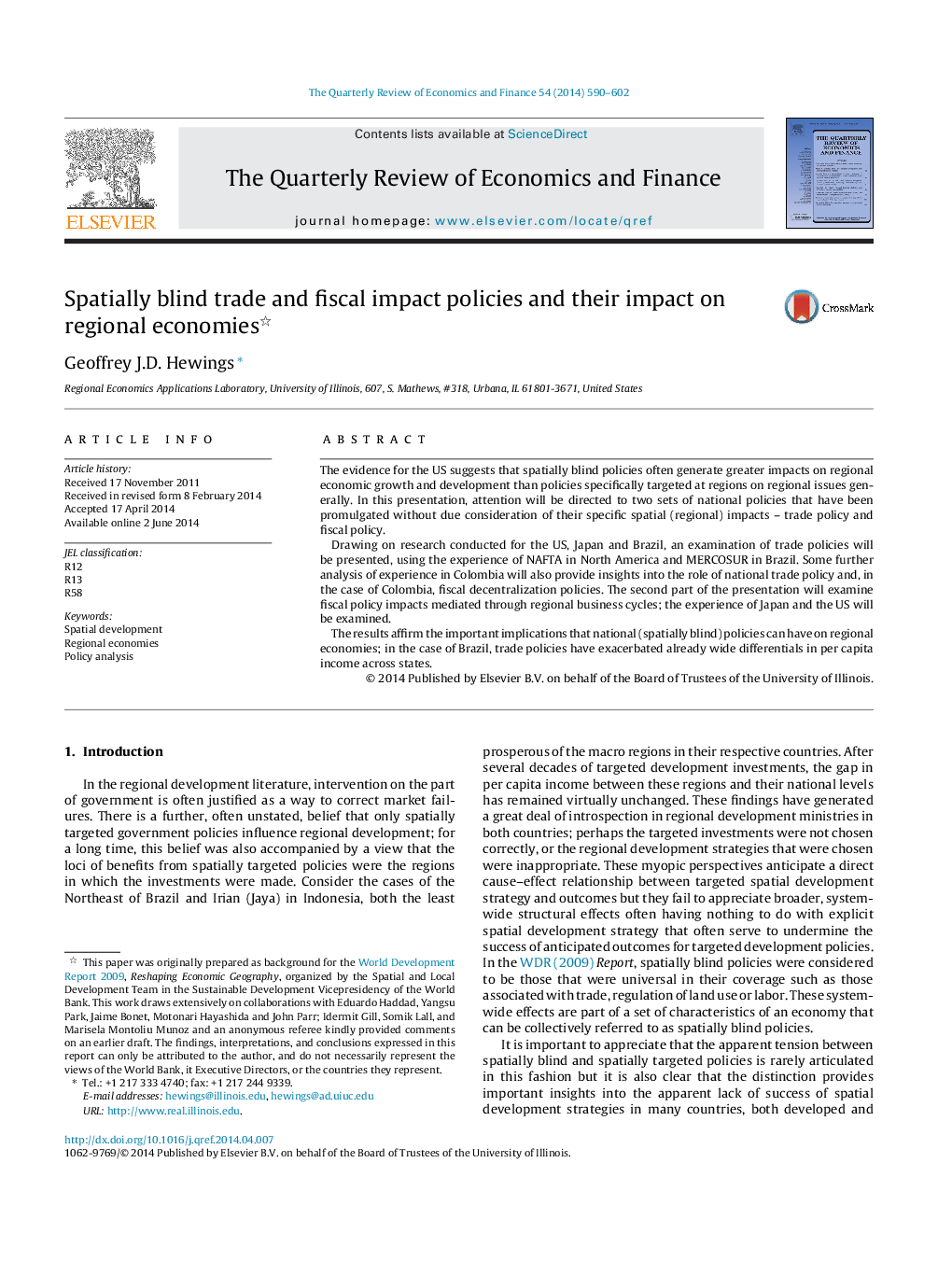| Article ID | Journal | Published Year | Pages | File Type |
|---|---|---|---|---|
| 982190 | The Quarterly Review of Economics and Finance | 2014 | 13 Pages |
•Non-regionally explicit government policies have an important spatial impact.•In developing countries, spatially blind policies exacerbate regional inequalities.•Similar regional structures generate non-coordinated regional business cycles.
The evidence for the US suggests that spatially blind policies often generate greater impacts on regional economic growth and development than policies specifically targeted at regions on regional issues generally. In this presentation, attention will be directed to two sets of national policies that have been promulgated without due consideration of their specific spatial (regional) impacts – trade policy and fiscal policy.Drawing on research conducted for the US, Japan and Brazil, an examination of trade policies will be presented, using the experience of NAFTA in North America and MERCOSUR in Brazil. Some further analysis of experience in Colombia will also provide insights into the role of national trade policy and, in the case of Colombia, fiscal decentralization policies. The second part of the presentation will examine fiscal policy impacts mediated through regional business cycles; the experience of Japan and the US will be examined.The results affirm the important implications that national (spatially blind) policies can have on regional economies; in the case of Brazil, trade policies have exacerbated already wide differentials in per capita income across states.
